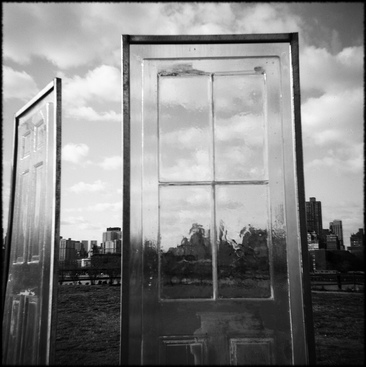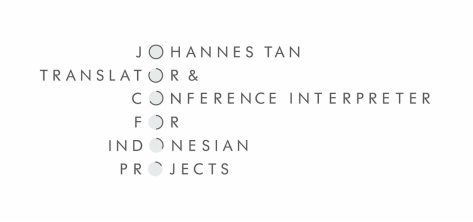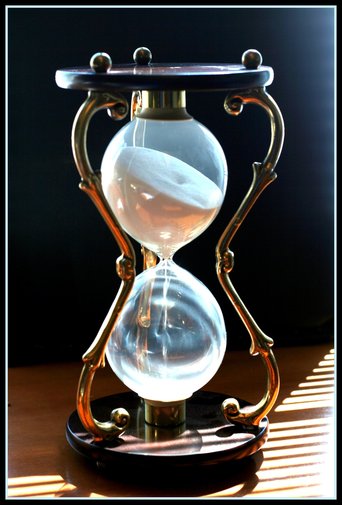Between Stockholm Syndrome and Lima Syndrome
Part 34: An Unexamined Belief is not Worth Believing

It is because they have mistaken the dawn for a conflagration that theologians have so often been the foes of light.
-JOHN OWEN (1616-1683)
Last Wednesday I received an email from a reader asking what was I suggesting in my previous post, Part 33 (Pacifism in Martial Arts, Violence in Religions). In short, to rephrase him, do we all have to embrace martial arts and abandon religion? To which my reply is: who am I to tell others what to believe? Not any smarter much less holier than anyone, I have never received any divine or supernatural revelation, and don't plan to. Please, enough of that.
In fact, if there is an underlying theme of all these weekly posts, it is this: under any circumstances, no one should ever be told what to believe—and what not to believe. As long as we blindly follow the believe of others without examining it, then we are bound as hostages. Didn't Socrates once say that an unexamined life is not worth living? Then allow me to expand his maxim by saying an unexamined belief is not worth believing.
After all, as described in Part 9 (An Eskimo Hunter and the Local Missionary Priest), the Aztecs seriously believed in sacrificing thousands of innocent men, women and babies merely to appease Huitzilopochtli (god of the south), Tezcatlipoca (god of the north), Huehueteotl (fire god), Tlaloc (god of the rain), and Xipe Totec (god of the east and water). In Hinduism, as described by Klaus Klostermaier in A Survey on Hinduism (1994), there was serious disagreement over whether Lord Siva (Destroyer or Judge) or Lord Vishnu (Preserver or Protector) was more divine, and many have been killed for their belief in this matter. The Lingapurana promises Siva's heaven to one who kills or "tears out the tongue" of someone who reviles Siva. Indeed in Christianity, burning witches and heretics as well as practicing slavery was part of the belief.
If only there was a skeptical and infidel among the Aztecs or ancient Hindus then…
Therefore, only by socratically examining our belief can we truly be free and liberated. According to Matthew 7:7-8: "Ask, and it will be given to you; seek, and you will find; knock, and it will be opened to you. For everyone who asks receives, and he who seeks finds, and to him who knocks it will be opened…" Surely this maxim applies to the truth. Knocking on the Door of Truth or kicking the tires are basically the same thing. Before making a purchase of merely a worldly possession, basic due diligence is in order—either by trying on a wristwatch, browsing a book, kicking the tires of a car, or reading some third-party reviews. Otherwise we'll end up with an uncomfortable watch, a junk book, or a lemon. Then why should we apply different standards with a belief that we embrace for life? As impulse buying may cause severe buyer's remorse, wouldn't impulse believing cause believer's remorse? It would be tragic if on our death bed we, belatedly, discover that we don’t truly believe in what we thought we have always believed in.
Most people inherit their beliefs from their parents and think it's inappropriate to convert. They forget that Siddhartha Gautama (the Buddha), Jesus of Nazareth, and Muhammad were converts themselves and were at once condemned as infidels by their societies. The Buddha rebelled against Hinduism and ran away from his father Suddhodana, who was so disappointed by his son's departure and search for enlightenment, that he sent 10,000 messengers to persuade his son's return. Jesus' parents, uncle and aunt were Torah-observant Jews, yet he rebelled against Judaism for which he was eventually crucified. Muhammad rebelled against the tyranny of Meccan tribes who worshiped pagan idols—that's why his forced hijra or migration from Mecca to Medina in 622 to escape their persecution—which marks the beginning of the Islamic calendar.
Believe it or not, believers have to thank those who were once unbelievers.
[To be continued.]
Johannes Tan, Indonesian Translator & Conference Interpreter
-JOHN OWEN (1616-1683)
Last Wednesday I received an email from a reader asking what was I suggesting in my previous post, Part 33 (Pacifism in Martial Arts, Violence in Religions). In short, to rephrase him, do we all have to embrace martial arts and abandon religion? To which my reply is: who am I to tell others what to believe? Not any smarter much less holier than anyone, I have never received any divine or supernatural revelation, and don't plan to. Please, enough of that.
In fact, if there is an underlying theme of all these weekly posts, it is this: under any circumstances, no one should ever be told what to believe—and what not to believe. As long as we blindly follow the believe of others without examining it, then we are bound as hostages. Didn't Socrates once say that an unexamined life is not worth living? Then allow me to expand his maxim by saying an unexamined belief is not worth believing.
After all, as described in Part 9 (An Eskimo Hunter and the Local Missionary Priest), the Aztecs seriously believed in sacrificing thousands of innocent men, women and babies merely to appease Huitzilopochtli (god of the south), Tezcatlipoca (god of the north), Huehueteotl (fire god), Tlaloc (god of the rain), and Xipe Totec (god of the east and water). In Hinduism, as described by Klaus Klostermaier in A Survey on Hinduism (1994), there was serious disagreement over whether Lord Siva (Destroyer or Judge) or Lord Vishnu (Preserver or Protector) was more divine, and many have been killed for their belief in this matter. The Lingapurana promises Siva's heaven to one who kills or "tears out the tongue" of someone who reviles Siva. Indeed in Christianity, burning witches and heretics as well as practicing slavery was part of the belief.
If only there was a skeptical and infidel among the Aztecs or ancient Hindus then…
Therefore, only by socratically examining our belief can we truly be free and liberated. According to Matthew 7:7-8: "Ask, and it will be given to you; seek, and you will find; knock, and it will be opened to you. For everyone who asks receives, and he who seeks finds, and to him who knocks it will be opened…" Surely this maxim applies to the truth. Knocking on the Door of Truth or kicking the tires are basically the same thing. Before making a purchase of merely a worldly possession, basic due diligence is in order—either by trying on a wristwatch, browsing a book, kicking the tires of a car, or reading some third-party reviews. Otherwise we'll end up with an uncomfortable watch, a junk book, or a lemon. Then why should we apply different standards with a belief that we embrace for life? As impulse buying may cause severe buyer's remorse, wouldn't impulse believing cause believer's remorse? It would be tragic if on our death bed we, belatedly, discover that we don’t truly believe in what we thought we have always believed in.
Most people inherit their beliefs from their parents and think it's inappropriate to convert. They forget that Siddhartha Gautama (the Buddha), Jesus of Nazareth, and Muhammad were converts themselves and were at once condemned as infidels by their societies. The Buddha rebelled against Hinduism and ran away from his father Suddhodana, who was so disappointed by his son's departure and search for enlightenment, that he sent 10,000 messengers to persuade his son's return. Jesus' parents, uncle and aunt were Torah-observant Jews, yet he rebelled against Judaism for which he was eventually crucified. Muhammad rebelled against the tyranny of Meccan tribes who worshiped pagan idols—that's why his forced hijra or migration from Mecca to Medina in 622 to escape their persecution—which marks the beginning of the Islamic calendar.
Believe it or not, believers have to thank those who were once unbelievers.
[To be continued.]
Johannes Tan, Indonesian Translator & Conference Interpreter




 RSS Feed
RSS Feed